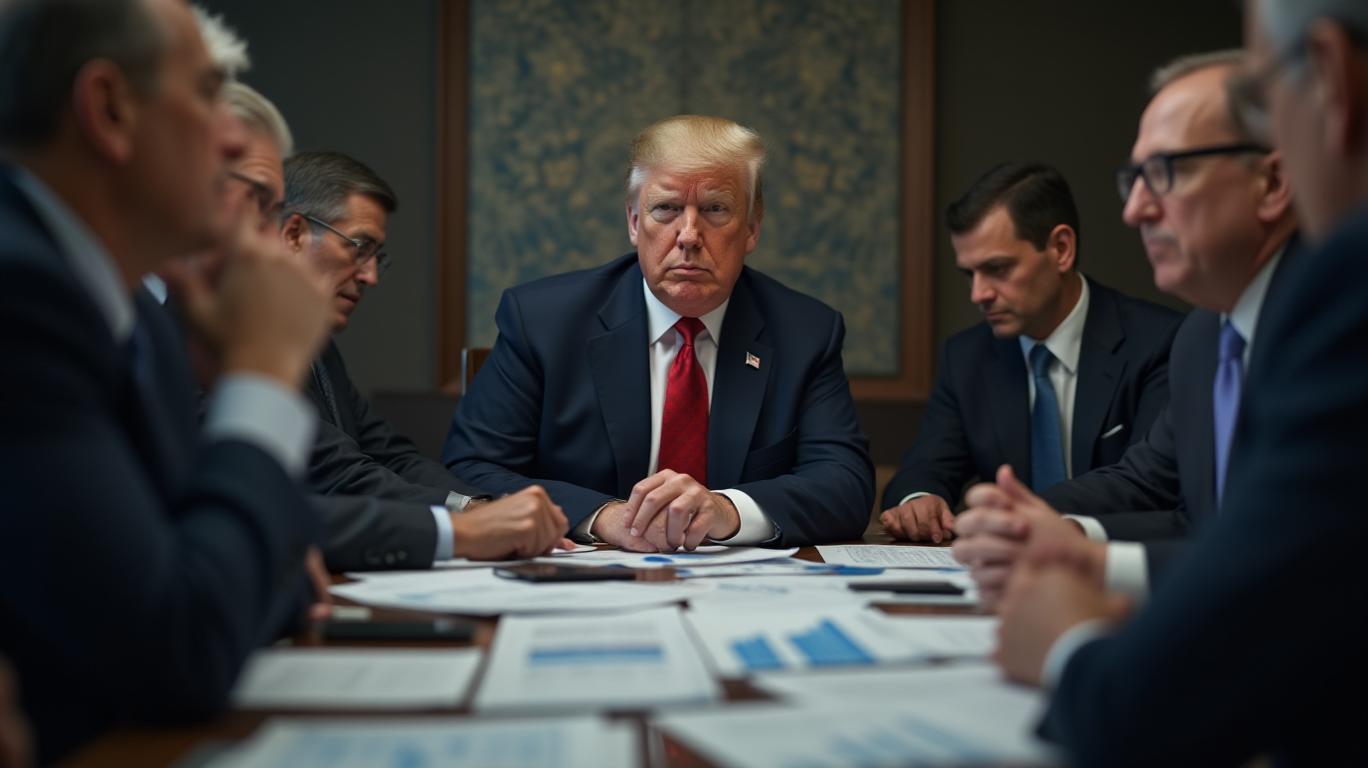Trump's Tariffs Spark Global Economic Concerns, Potential Tax Overhaul
President Donald Trump's tariff policy has ignited substantial debate and concern among economists and financial analysts. Michael Gapen, chief U.S. economist at Morgan StanleyMS--, has underscored the potential for a radical transformation in U.S. tax and trade policies under Trump's administration. Gapen's analysis suggests that the tariffs imposed by the Trump administration could precipitate a significant overhaul of the U.S. tax code and trade agreements, with extensive implications for the global economy.
The tariffs, which are primarily directed at China, have already provoked retaliatory measures from Beijing, intensifying tensions between the two economic giants. Gapen observes that these tariffs could disrupt global supply chains and elevate costs for U.S. consumers and businesses. The looming threat of a trade war has sparked concerns about the stability of the global economy, with analysts cautioning about potential recessions in both the U.S. and China.
Gapen also emphasizes that the tariffs could have a profound impact on U.S. tax policy. The Trump administration has proposed a series of tax cuts and reforms, which could be employed to mitigate the economic impact of the tariffs. However, Gapen warns that these tax cuts could worsen the U.S. budget deficit, leading to long-term economic instability. He advises that the administration should concentrate on targeted tax cuts and reforms that foster economic growth without inflating the deficit.
The tariffs could also significantly influence U.S. trade agreements. The Trump administration has exited several multilateral trade agreements, including the Trans-Pacific Partnership (TPP) and the North American Free Trade Agreement (NAFTA). Gapen notes that these withdrawals could steer the U.S. towards bilateral trade agreements, which might be more advantageous to U.S. interests. Nevertheless, he cautions that these agreements could also foster increased protectionism and diminished global trade.
Gapen's insights reveal the potential for a radical shift in U.S. tax and trade policies under the Trump administration. The tariffs imposed by the administration could have far-reaching consequences for the global economy, affecting global supply chains, U.S. tax policy, and trade agreements. While the administration's tax cuts and reforms could alleviate some of the economic impact of the tariffs, Gapen warns that these cuts could also exacerbate the U.S. budget deficit. The prospect of a trade war and heightened protectionism also raises concerns about the stability of the global economy.

Quickly understand the history and background of various well-known coins
Latest Articles
Stay ahead of the market.
Get curated U.S. market news, insights and key dates delivered to your inbox.

Comments
No comments yet